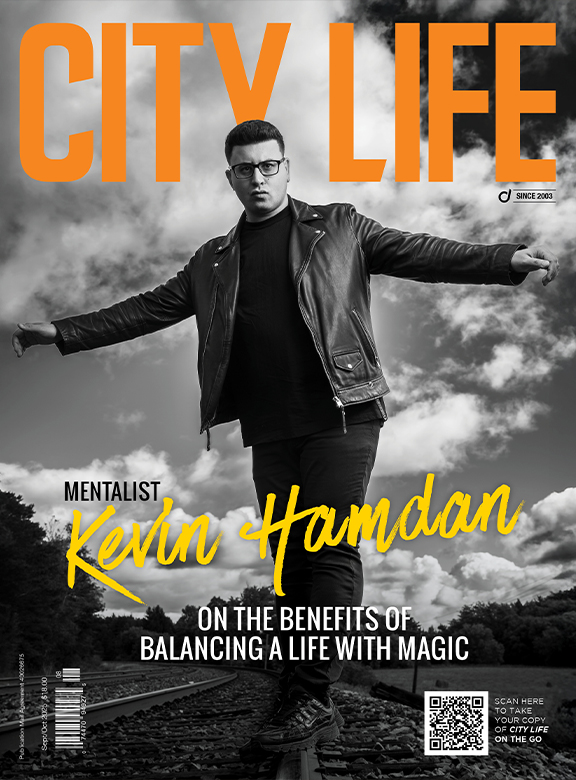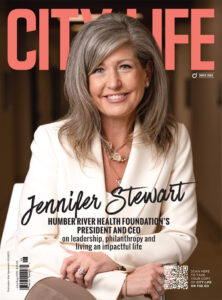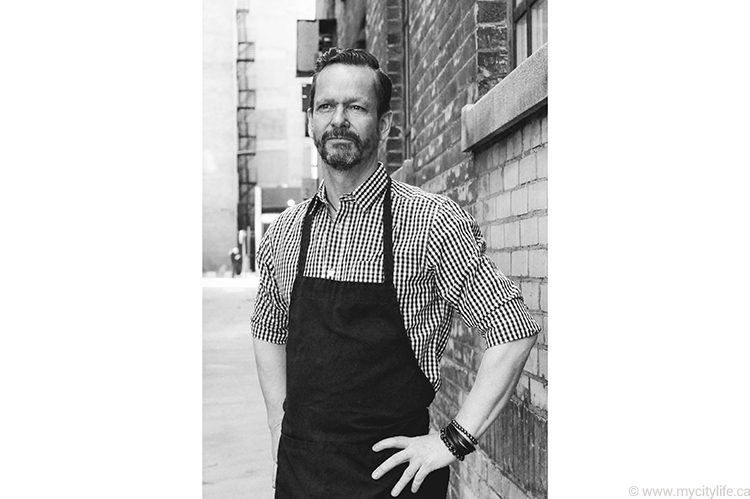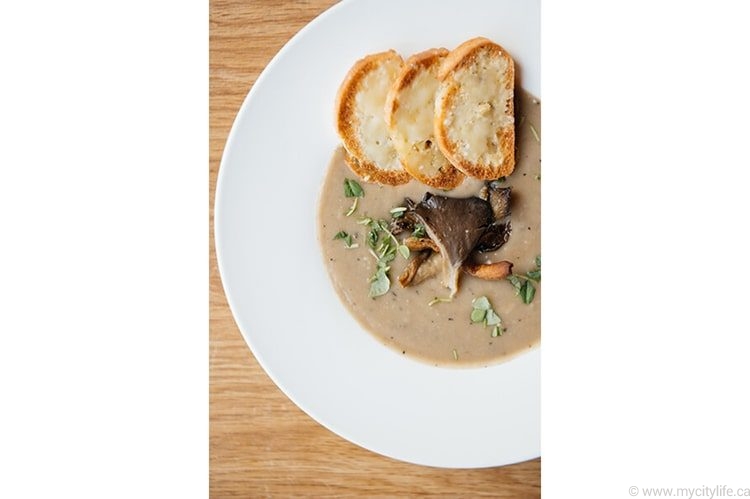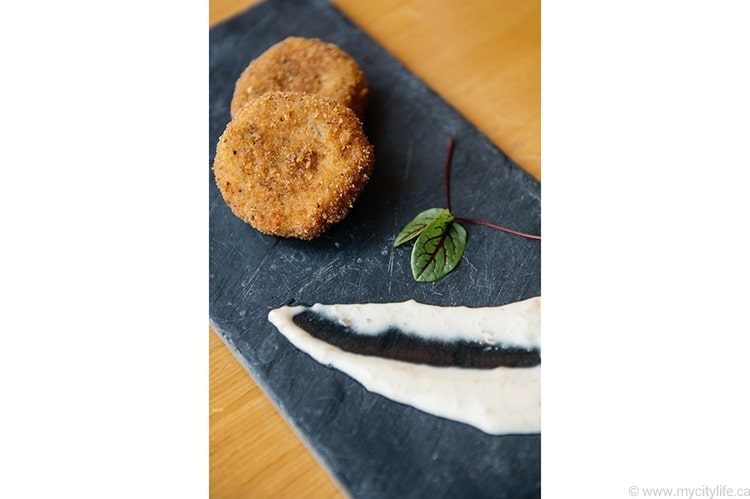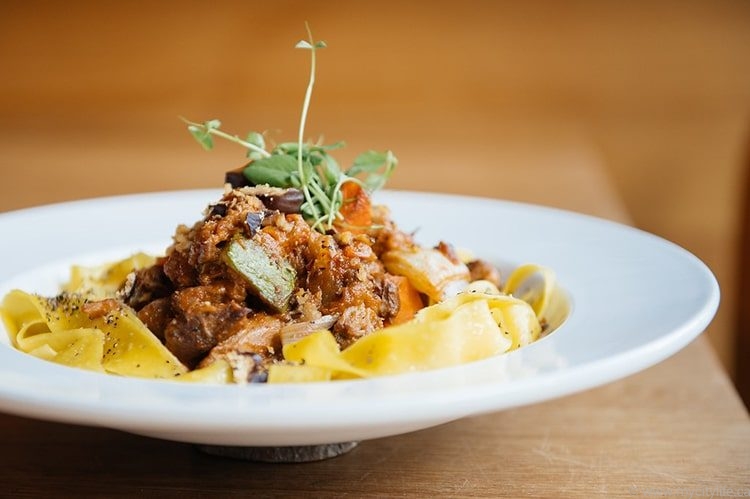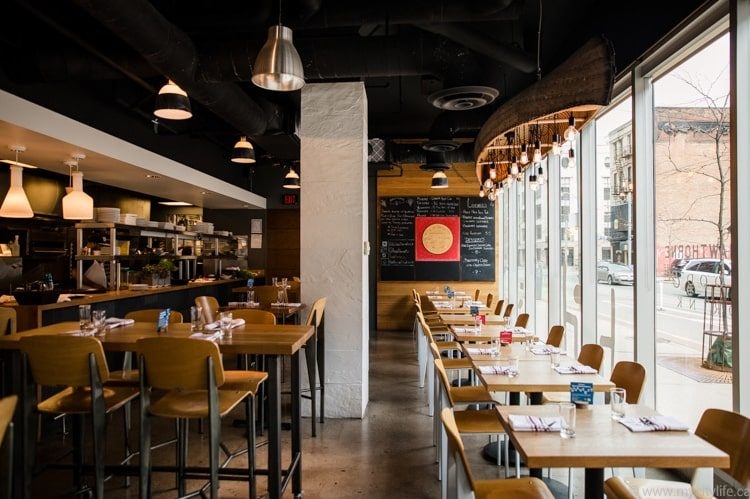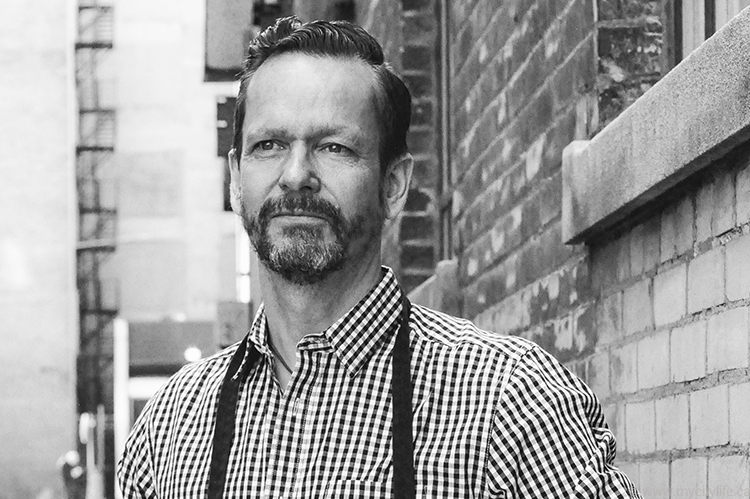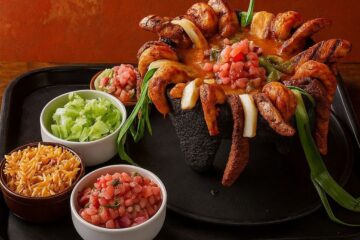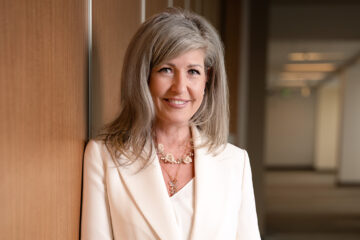Tim Freear: Breaking Barriers To Cooking
In a city filled with many restaurants, Toronto’s Hawthorne chef Tim Freear likes to be creative in the kitchen and keeps things fresh by staying ahead of food trends.
Q. Can you tell us a bit about your past experiences that have led you to this career path?
A. Alongside my jobs working in restaurants and retail, I volunteered my time and worked by helping in my community. I worked as a peer counsellor, organized and curated charity auctions, planned fundraising and events with Vancouver Pride Society. After years of running my own boutique catering company, I decided it was time for a change. I jumped at the opportunity to work in a hospitality environment with a focus on helping people enter the industry.
Q. What is the deal with Hawthorne Food & Drink, and what is the experience you hope to deliver to your patrons?
A. Hawthorne’s deal is that we provide free training and then assist in finding good jobs for individuals who have faced barriers to obtaining employment. We also work with as many local suppliers as possible; this allows us to contribute to building a better local economy and, in turn, helps to create jobs. We aim to deliver a quality casual dining experience, using local sustainable ingredients prepared and served by our participants alongside industry professionals imparting their skills and knowledge.
“I can find inspiration almost anywhere, but I get especially inspired when tasting new ingredients, visiting wine country or foraging in nature”
Q. Define comfort food for us.
A. I would define comfort food as something that has sentimental value, reminds you of a time when you felt safe, cared for and loved. It can soothe you after a hard day or wash away stress.
Q. What excites you about your job?
A. The simplest things get me excited sometimes. Most often lately is when working with our trainees, and one of them has an “aha” moment. You see the light in their eyes, a smile breaks out on their face and they understand a technique or concept that eluded them before. Their excitement excites me.
Q. Where do you like to go to get inspired as a chef?
A. I can find inspiration almost anywhere, but I get especially inspired when tasting new ingredients, visiting wine country or foraging in nature.
Q. What is one change you would like to see in your field?
A. One change that I think is long overdue is the angry chef who is temperamental, disrespectful and condescending. The media loves to portray this because it makes for good television, and it, unfortunately, leads some cooks to believe that this behaviour is required to be successful. Not surprisingly, most of the best chefs I have worked with ruled with respect, inclusion and empathy. Their teams were loyal and would do anything to help maintain the chef ’s exacting standards.
Q. What is the one thing you like about your industry?
A. I like the fact that in this industry,interpretation and very few limits as to what that can lead to creatively.
Q. What are some of your favourite foods and dishes you enjoy making at your restaurant?
A. I have a few favourites. One for sure is our Bloody Caesar Flank Steak. My mouth waters thinking about the combination of the spicy, crisp elements of our Canadian Classic Cocktail garnishes with the flavour of a well-seasoned medium-rare flank steak. Finishing that bite off with the creamy comfort of the celeriac Yukon gold mash, perfect. I also really enjoy working on our market-fresh features; it gives me a chance to have some fun and experiment, as well as use ingredients that are available only for a short time.
Q. How do you stay competitive in a city with so many restaurants?
A. One of the ways we stay competitive is by keeping things fresh and trying to stay ahead of the curve on food trends — all the while maintaining our commitment to using as many locally sourced and sustainable ingredients as possible, something that is important to us and our loyal customer base. Additionally, we try to keep our prices reasonable for the quality of the food and beverage we serve. I think we also get a bit of an edge because our customers know that by letting us serve them, they also get to be part of our social enterprise movement and help make a positive difference in people’s lives.
Q. Tell us a bit about where you grew up, your family history, etc.
A. My mother emigrated from the Netherlands as a teen, and my father was born on a homestead and raised on a farm. Our family moved around a fair bit, residing in Alberta and B.C., with me eventually moving to Toronto. While most of our time was spent in the city, we also lived on farms. Living on the farms gave me hands-on experience of raising and growing the food that ended up on our table.
Q. When you were growing up, did you always want to be a chef?
A. Coming from a large family, the middle child of five, I started helping in the kitchen when I was quite young. I took to it quite naturally and knew it was what I wanted to do. My first job was as a dishwasher when I was 14. I couldn’t keep my nose out of the kitchen and snuck onto the line to learn as much as possible.
Q. What would you tell a younger version of yourself, now that you have gathered enough experience?
A. Not to worry so much about what other people think, trust yourself and your instincts. You know what you’re doing, you got this.
Q. What is a favourite restaurant to eat at, aside from yours?
A. My current favourite restaurant is True True Diner. They have a great atmosphere and incredible food. They work with a social conscience and are trying to improve the employment landscape in our industry. I am, however, a bit partial because it is owned by a friend of mine and her husband.
Q. Are you a fan of anything in particular?
A. I am not typically a fan of celebrity chefs. I am, however, a fan of authenticity, contributing and inclusion, and chefs who exhibit those qualities.
Q. What drives you crazy most days?
A. One thing that drives me crazy most days is when consumers often misunderstand what it means to be a social enterprise or not-for-profit business. There seems to be a general expectation that we offer, or have the ability to offer, our products and services at a discounted or lower rate than comparable for-profit businesses. The reality is, any money the organization makes is reinvested into the programs and services we offer, it’s not going to owners.
Q. What do you love about Toronto?
A. I love the culturally diverse food scene; it allows me to experience and learn new things right outside my door.
www.hawthorneto.ca
@hawthorne_to
Interview by Michelle Zerillo-Sosa
